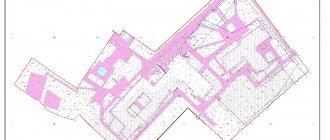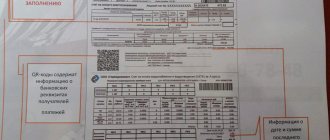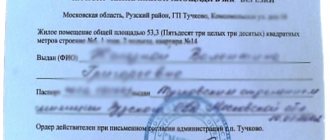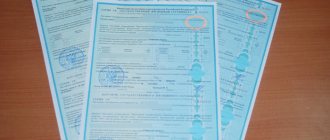What is GIS housing and communal services, and why is it needed?
The regulatory act regulating issues related to GIS housing and communal services is Federal Law No. 209-FZ of July 21, 2014.
It defines what kind of system this is and why it is needed, as well as all the basic concepts, aspects and rules for the functioning of this portal. Digitalization is confidently advancing around the world; more and more spheres of human life, including state and public life, are being transferred to electronic format. Already now, a citizen has the right to receive most government services remotely, without leaving home, using the State Services portal. It seems logical to create a specialized information system dedicated to such a vast area of human activity as housing and communal services. It became GIS Housing and Communal Services.
GIS Housing and Communal Services is a state information system for housing and communal services, created under the auspices of the Ministry of Telecom and Mass Communications of Russia and the Ministry of Construction of Russia. The portal serves as a tool for quick and effective communication between citizens, utility service providers and regulatory authorities.
In particular, using the portal, citizens have the right to:
- find out the status of your own utility bills and pay them immediately;
- transmit meter readings;
- find out about planned events - for example, water outages, the beginning and end of the heating season, repairs;
- check accrued payments and compare them with current tariffs;
- file complaints about poor quality services.
For utility service providers, such a portal is a convenient way to convey important information to residents and receive feedback from them.
Using the system, regulatory authorities quickly receive information about complaints and have the opportunity to take timely action on them.
Currently, the operator of the GIS Housing and Public Utilities is JSC Russian Post, but the transfer of the resource under the leadership of another entity, JSC Information System Operator, is being discussed.
The main federal website of the system is located at: https://dom.gosuslugi.ru/, but it also has regional segments. Thus, the GIS Housing and Communal Services in Moscow has a regional segment associated with the website of the Moscow City Hall.
Why do you need to register?
First of all, if an organization is not registered in the Housing Information System, this entails the following consequences:
- For organizations providing a service or supplying a utility resource, this is subject to administrative fines.
- Until December 31, 2017, the service consumer had the full right to refuse to pay a paper bill (receipt) if the information was not reflected in the Housing and Communal Services GIS. This right was established in paragraph 8 of Article 12 of Federal Law No. 209 of July 21, 2014, but Art. 2 of the Federal Law of December 31, 2017 No. 485-FZ declared this paragraph to be invalid.
Registration on the portal
To get started, you need to go to the official website of the GIS Housing and Communal Services: https://dom.gosuslugi.ru/. Already on the main page there is basic information about the portal, categories of users, and there is even an answer to the question of how GIS Housing and Communal Services stands for:
To start working in the system, citizens need to register with the Unified Identification and Logistics Agency - everyone who has a confirmed account on State Services has it. To go to your personal account, just click the red “Login” button in the upper right corner of the screen and log in through the Unified identification and authentication system. The system already has all the necessary information about real estate owned by a person, payments and other data.
Registration in the system of an organization, be it a service provider, a resource supply company or a government agency, is more difficult and takes longer. Registration begins with the fact that the head of the person or another person who is designated in the Unified State Register of Legal Entities of a legal entity as a person who has the right to act on behalf of the person without a power of attorney, acquires a personal qualified electronic signature. It must be obtained from an accredited certification center.
With the help of a signature, he is registered in the Unified identification and authentication system. Then, in his personal profile in the ESIA, he registers the organization in the ESIA, and then in the GIS Housing and Communal Services.
Full and brief instructions for registration are published on the website:
IMPORTANT!
In addition to the website, the system has a GIS housing and communal services application, available on both Google Play and the App Store. Thus, the developers took care of access to the system through mobile devices, which is especially convenient for citizens.
In addition to information about the registration procedure, the site has many instructions on how to use the GIS housing and communal services, regulations and reference materials.
Setting the agenda
When creating an agenda, remember the rules (clause 17 of Order 44/pr):
- the wording should reflect the essence of the issues and exclude the possibility of their ambiguous interpretation;
- if the wording of the question is established by law, then the question is indicated in accordance with the requirements;
- It is not allowed to include on the agenda issues with the wording “Miscellaneous”, “Other issues” or other wording similar in semantic content;
- It is not allowed to combine questions of different semantic content in one formulation;
- if the question concerns the consideration of a document, then the wording must contain the full name and details of the document.
As an example, let’s take the purpose of the meeting - the creation of an MKD council and a chairman.
Based on the given conditions, the agenda will be as follows:
- On the election of the MKD council
- On the election of the chairman of the MKD council from among the members of the MKD council
To hold subsequent online meetings, it is also necessary to include the following issues on the agenda (Part 2.1, Article 47.1 of the Housing Code of the Russian Federation):
- about choosing a meeting administrator;
- on the procedure for the administrator to receive messages about the meeting and decisions of the owners;
- about the duration of online meetings.
For whom registration in the system is required?
For citizens, the use of the system is purely voluntary, in contrast to service and resource organizations and authorities.
According to the rules established by 209-FZ, the official website of the state housing and communal services information system contains information about all utility service providers and resource supply organizations, so registration is mandatory for them. There are no exceptions in the law, so even housing cooperatives with several dozen apartments are required to register in the system.
Is an online meeting of owners a new form of general meeting?
There are three forms of general meetings of owners (Article 44.1 of the Housing Code of the Russian Federation):
- in-person (joint presence of owners to discuss and vote on the agenda);
- correspondence (by survey or using the system);
- part-time
As you can see, an online meeting form is not provided separately. By online meeting we mean a meeting in absentia using the system provided for in Art. 47.1. Housing complex of the Russian Federation.
Information providers in GIS housing and communal services
Information providers are:
- resource supply organizations;
- housing construction cooperatives (HBC);
- homeowners associations (HOAs);
- management companies;
- other authorized organizations;
- state, regional and local authorities.
For example, the rule in force in the Housing Information System for management companies and other utility service providers, established by Article 6 209-FZ, states that such entities place in the system the following information:
- title documents;
- activity data;
- information on maintaining electronic passports of apartment buildings;
- readings of communal meters;
- information about the maintenance and servicing of common property;
- payment documents for services in electronic form;
- current tariffs;
- information on meetings of residents of the house;
- financial documentation;
- management and resource supply agreements;
- reports on processed requests received from citizens.
Blog
Photo source: https://www.pexels.com/
Part 1. From 731st to 731st
A little more than a year has passed since the article “ Where and what to disclose to management companies and HOAs?”
“, and it became clear that the issue needed to be returned to be updated.
First, let's refresh our memory on the main points regarding the regulatory regulation of information disclosure by management organizations, homeowners' associations and cooperatives.
For the first time, for these entities, the obligation to disclose a certain minimum of information was formulated in the Decree of the Government of the Russian Federation of September 23, 2010 No. 731 “On approval of the standard for information disclosure by organizations operating in the field of management of apartment buildings” (hereinafter referred to as Standard No. 731).
Mandatory federal
a certain website www.nosoun.ru was designated as an Internet resource, the vastness of which was ordered to “come out of the darkness.” Several programmers from Izhevsk, for mere pennies, made something that could not be successfully registered and worked on (read: disclose information) from any browser. By the way, the situation was complicated by the fact that almost every “revealer” grew into the workplace, engaged in “dumping out” digitized documents. Even then, “persons close to the emperor” realized that they could not make money out of thin air.
Gradually, the portal was “finished”, its new, already quite civilized, version was prepared, and it became obvious that it was time to put an end to the handicrafts, the era of “disclosure on an industrial scale” had arrived.
Soon the state, represented by the Ministry of Construction, decided that it was time to lead the process: the website www.reformagkh.ru, determined by the relevant order, appeared to disclose information.
And “ReformaZhKKH” has gone from being completely unsuitable for disclosing information to an almost understandable and familiar resource.
In parallel, Standard No. 731 obligated management organizations to disclose information on their websites, while for HOAs and cooperatives to have “their own website” was not a mandatory requirement.
Let’s not remember the obligation to disclose information on certain regional resources, since these resources were simply not created in most subjects and municipalities.
A remark aside: posting identical information on several resources (essentially duplication) instead of generally accepted hyperlinks is redundant. By the way, the NOSOUN adherents at first tried to prove to everyone that only they need to disclose information, and on other resources you can simply put an active hyperlink.
The Ministry of Construction quickly put an end to this free spirit, but the common sense idea was picked up; Subsequently, duplication was partially abandoned. But this happened already with the birth of GIS housing and communal services.
Please note that the volume of information to be disclosed “on information boards” was large initially, but this did not raise any special questions, everyone managed somehow.
Over time, it seemed to legislators that management organizations, homeowners' associations and cooperatives had completely learned to electronically “expose themselves”; then the Decree of the Government of the Russian Federation of December 28, 2012 No. 1468 “On the procedure for providing information to local governments by persons supplying resources necessary for the provision of public services and (or) providing public services in apartment buildings and residential buildings or services (work) appeared” on the maintenance and repair of common property of premises owners in apartment buildings,” which, strictly speaking, did not force organizations to disclose information, but determined the need to monthly write and send to local authorities a certain document called “Electronic passport of apartment buildings.”
Not only the “information providers”, but also the entire local self-government had a lot of fun with the electronic passport locally, and therefore the ill-fated resolution lasted only two and a half years, its “demise” somehow passed unnoticed against the backdrop of the development of requirements for disclosure of information on “ Reform of housing and communal services." Remember how much controversy there was over “disclosure forms”?
A bright future in the form of GIS housing and communal services has arrived, but not immediately for everyone.
Now let's look around. Where are the information disclosure requirements generally formulated?
We go through the hierarchy: part 10 (and then part 10.1) art. 161 of the Housing Code of the Russian Federation, Decree of the Government of the Russian Federation of May 15, 2013 No. 416 “On the procedure for carrying out activities for the management of apartment buildings” (hereinafter referred to as Procedure No. 416) and a certain strange shadow of Standard No. 731, which is referred to by the said resolution in subparagraph. "z" clause 4.
Now this seems absurd, since Order No. 416 contains Section VIII. “The procedure for disclosing information by a management organization, partnership or cooperative.”
Let us pay attention to the following circumstances:
- The Housing Code of the Russian Federation determines that information is disclosed in the GIS Housing and Communal Services and (this is important in our topic) does not say anything
about “their websites” of management organizations, homeowners’ associations and cooperatives;
- Order No. 416 requires the disclosure of information on all kinds of stands and information boards, and about the websites (of management organizations, HOAs and cooperatives) it clearly says: “in the presence of
».
At first glance, one gets the impression that information should be disclosed electronically only
in the GIS Housing and Communal Services, and on their own websites - optionally (“if available”).
In other words, management organizations, homeowners associations and cooperatives are not required
to have their own website. (In fact, most management organizations have “their own websites,” but most homeowners’ associations and cooperatives do not.)
What about Standard No. 731? Decree of the Government of the Russian Federation of July 29, 2021 No. 1136 “On the recognition as invalid of certain acts and certain provisions of certain acts of the Government of the Russian Federation, on the repeal of certain regulatory legal acts of federal executive bodies containing mandatory requirements, compliance with which is assessed during control measures when exercising state control (supervision) in the areas of heat supply, energy efficiency, construction and housing and communal services” in clause 1 of Appendix No. 1 indicates Standard No. 731 among the normative and legal acts that have lost force. The said resolution itself will come into force on 01/01/2021. In fact, we have to live for another four months with the virtually dead Standard No. 731. After all, there is nothing significant left in it. Everything that needed to be posted/disclosed on Reform Housing and Communal Services went to the Housing and Communal Services GIS.
And it was here that a new, but well-known player suddenly appeared on the wide-open (and watered with tears) field of information disclosure - Rules No. 354.
Part 2. Rules No. 354. Shove in the unshoveable
To be fair, we note that the phrase “disclosure of information” is not in Rules No. 354. It only says that “the contractor provides the consumer with ... information.” True, it may be cheaper to be fined for failure to provide information than for non-disclosure (non-posting), but this is a separate issue.
By the way, Yu. V. Kochetkov drew attention to the fact that Rule No. 354 imposes serious information obligations on management organizations, homeowners' associations and cooperatives at one of the webinars, but this went unnoticed by the participants.
Let's carefully study clause 31 of Rules No. 354. We are interested in:
1) subparagraph h(1)
, which requires “to notify... by posting on the official website of the contractor and on information stands (stands)...
OR
by indicating at least once a quarter in payment documents” a huge amount of information;
(Resolution of the Government of the Russian Federation dated June 29, 2020 No. 950 increased
.
Subclause h(1) has existed for more than three years, we have somehow gotten used to it. Please note that sub. z(1) did not oblige management organizations, homeowners associations and cooperatives to have their own website
, since it left the possibility of an alternative “notification”: by “indicating in payment documents.”
2) subparagraph "p"
which deserves to be quoted in full:
“p) provide to the consumer (by specifying in the contract containing provisions for the provision of utility services, as well as posting on notice boards located in all entrances of an apartment building or within the land plot on which the apartment building (a residential building or a complex of residential buildings) is located) , in the state information system of housing and communal services, on the contractor’s website on the Internet, as well as on bulletin boards located on the contractor’s premises in a place accessible to all consumers, and in the cases provided for in paragraph 17 of these Rules - by posting in the state information system of housing and communal services, on the contractor’s website on the Internet, as well as on bulletin boards located on the premises of the resource supplying organization in a place accessible to all consumers) the following information:
- information about the performer - name, location (address of its permanent executive body), information on state registration, operating hours, address of the performer’s website on the Internet, as well as addresses of Internet sites where the performer is in cases provided for by the legislation of the Russian Federation , is obliged to post information about the performer, last name, first name and patronymic of the manager;
- addresses and telephone numbers of the control room, emergency dispatch service of the contractor or the person specified in paragraph 31(1) of these Rules;
- the size of tariffs (prices) for utility resources, tariff surcharges and details of the regulatory legal acts by which they are established;
- information about the right of consumers to apply for the installation of metering devices to an organization that, in accordance with the Federal Law “On Energy Saving and Increasing Energy Efficiency and on Amendments to Certain Legislative Acts of the Russian Federation,” does not have the right to refuse the consumer installation of a metering device and is obliged to provide installments in payment for services for installing a metering device, as well as information about such an organization, including its name, location and contact numbers;
- the procedure and form of payment for utility services, information about the consequences of late and (or) incomplete payment of utility bills, the absence of a metering device, unauthorized interference in the operation of the metering device, as well as the non-admission of the contractor to the premises to check the condition of the metering devices and the accuracy of the transmitted information about the readings such metering devices, as well as non-admission of the guaranteeing supplier (grid organization in relation to residential buildings (households) for installation, commissioning, verification, maintenance and connection to the intelligent electric energy (power) metering system of an electric energy meter located in such a room , in the cases provided for in Section VII of these Rules;
- indicators of the quality of public services, deadlines for eliminating accidents and other violations of the procedure for providing public services, established by the legislation of the Russian Federation, including these Rules, as well as information about these Rules;
- information on the maximum permissible power of devices, equipment and household machines that a consumer can use to meet household needs;
- names, addresses and telephone numbers of executive authorities (their territorial bodies and divisions) authorized to monitor compliance with these Rules;
- if a decision is made in a constituent entity of the Russian Federation to establish a social norm for the consumption of electrical energy (power):
- information on the value of the established social norm for the consumption of electrical energy (power) for groups of households and types of residential premises provided for by the Regulations on the establishment and application of the social norm for the consumption of electrical energy (power), for consumers receiving old-age and (or) disability pensions, for consumers living in residential premises classified as emergency housing stock or housing stock with a degree of wear and tear of 70 percent or more, as well as the conditions for the application of such a social norm by these consumers and the cases of non-application of such a social norm;
- information about the consumer’s obligation to inform the utility service provider about changes in the number of registered citizens in the residential premises;
- information on tariffs for electrical energy (power) established for the population and equivalent categories of consumers within and above the social norm for consumption of electrical energy (power);
- information about the need for the owner of non-residential premises in an apartment building to conclude a resource supply agreement in writing with a resource supply organization, as well as about the consequences of the absence of such an agreement within the specified time frame.”
If we extremely simplify the text of the first paragraph, it turns out that information should be provided to the consumer: in the management agreement (1), as well as on boards in all entrances (2) or in the local area (3), in the GIS Housing and Communal Services (4), on the website performer (5), as well as on boards in the office (6).
Note; When listing the required places (methods) of placement, commas and conjunctions “as well” are used. According to the rules of the Russian language, this cannot be interpreted otherwise than as a requirement to post information in all
listed places.
In this cunning way, Rule No. 354 introduced the requirement to have a website for management organizations, homeowners' associations and cooperatives, if
they are the executors of public services.
A remark aside: are there many management organizations, homeowners' associations and cooperatives in the country that are completely
“outsourced” public services (including MSW management) to “direct” contracts?
As for placing the prescribed amount of information on boards/stands in some human-readable form, even with a very developed imagination and small print, it is impossible to imagine several dozen pages of “brought to the attention.” You will need a very long hall in the office and the entire playground to place waste paper there and sometimes update it.
Let us note that the requirements for the obligatory website of the provider of public services were included in Rules No. 354 a year ago (by Decree of the Government of the Russian Federation No. 897 of July 13, 2019), but went almost unnoticed. But it was in them that, like a jack-in-the-box, the “performer’s website” appeared as an information grave of information.
By Decree of the Government of the Russian Federation dated June 29, 2020 No. 950, the list of information has expanded, but the requirements for the methods and places of its placement have not changed.
Let's summarize some results? What we have today:
- GIS housing and communal services (where can we go?);
- Order No. 416 (websites for management organizations, homeowners' associations and cooperatives are optional);
- Standard No. 731 (has already officially died - the inglorious end of the regulatory guillotine);
- Rules No. 354 (websites for management organizations, homeowners' associations and cooperatives are required if these organizations provide at least one public utility service).
Praemonitus praemunitus, as the proud ancestors of the Italians said. He who is forewarned is forearmed.
Posting information on the portal
Information on the portal is published by housing cooperatives, homeowners' associations, management companies, resource providers and authorities. The list of required information and publication deadlines are established by the joint Order of the Ministry of Telecom and Mass Communications and the Ministry of Construction dated February 29, 2021 No. 74/114/pr.
For example, within 15 days from the occurrence of the relevant event, information about:
- registration of a legal entity;
- managed house, its address, territory, cadastral number and other parameters;
- registration of apartments or rooms in the cadastral register;
- registration or formation of non-residential premises;
- repair of common property in an apartment building.
Seven days are given to publish, for example, data on:
- tariffs and fees for all utilities and work;
- bank and current account;
- deadlines for providing payment documents to residents;
- timing of transmission of meter readings;
- timing of payment by residents of utilities;
- other data.
It is necessary to update information monthly on the quantity of utility services provided, their quality, cases of violations and missed deadlines for their elimination.
How to fill out a list of works and services for a management company - algorithm of actions
Below we provide step-by-step instructions on how to enter the necessary information for management companies.
How to enter data manually?
Manually filling in the data involves specifying information about the premises, personal account, owner’s initials, etc.
The manual data entry process involves:
- go to the “Housing Objects” tab;
- finding the right home;
- opening the “Object Management” section;
- filling in all the necessary groups.
The list of services and works is formed as follows:
- select the “Add list” action.
- indicate the period for creating the list;
- activate the data entry field;
- add price, volume and quantity;
- calculate the cost of the service using a formula or manually.
How to fill out electronically?
It is much more convenient to use templates for data entry, which greatly simplifies the work. This can be done using Microsoft Office Excel. To do this, you need to go to the GIS and download an electronic document to your computer.
The following fields are filled in on the first sheet of the document:
- service user's personal account number;
- payer status: owner or tenant;
- living area according to the passport.
On the second sheet you enter the following information:
- the amount of interest paid monthly by the consumer of services from actually issued payments;
- Bank account number;
- house address;
- apartment number;
- residential building code according to the Federal Address Information System.
If one residential premises has several personal accounts, then this must be entered into the database (how to load, add, change or delete a personal account in the Housing and Communal Services GIS?).
After entering this data:
- the template is saved on the computer;
- login to your personal account;
- authorization required;
- The completed file is loaded and the “Import” button is pressed.
The section “List of works and services” is filled out only according to the template . It includes the following actions:
- login;
- authorization in your personal account;
- search for the “Menu” block and its “Directory” section;
- search for the “Works and Services” section;
- pressing the “Add service” button;
- selecting a job or service from the list or entering it manually;
- clicking the “Save” button.
The legislation does not prohibit the introduction of services and work that are in demand among the population and for which people are willing to pay.
After saving you need:
- go to the “Managed House” block;
- select the action “Go to object management”;
- click the “Generate list” command;
- Save all changes again.
What information the system contains in general and what needs to be posted for RSOs, HOAs, management companies and housing cooperatives is described here.
The advantages of such electronic representation
GIS housing and communal services is a social tool that allows utility organizations to effectively work with residents of apartment buildings, as well as the private sector. Owners of residential premises can also rate the results of the HOA's work . The difference lies in the geography of distribution of the electronic resource. GIS Housing and Communal Services is a federal resource.
The presentation of data on accruals in the personal accounts of the electronic HOA is organized through the authorization of State Services. This saves time and money for the HOA.










